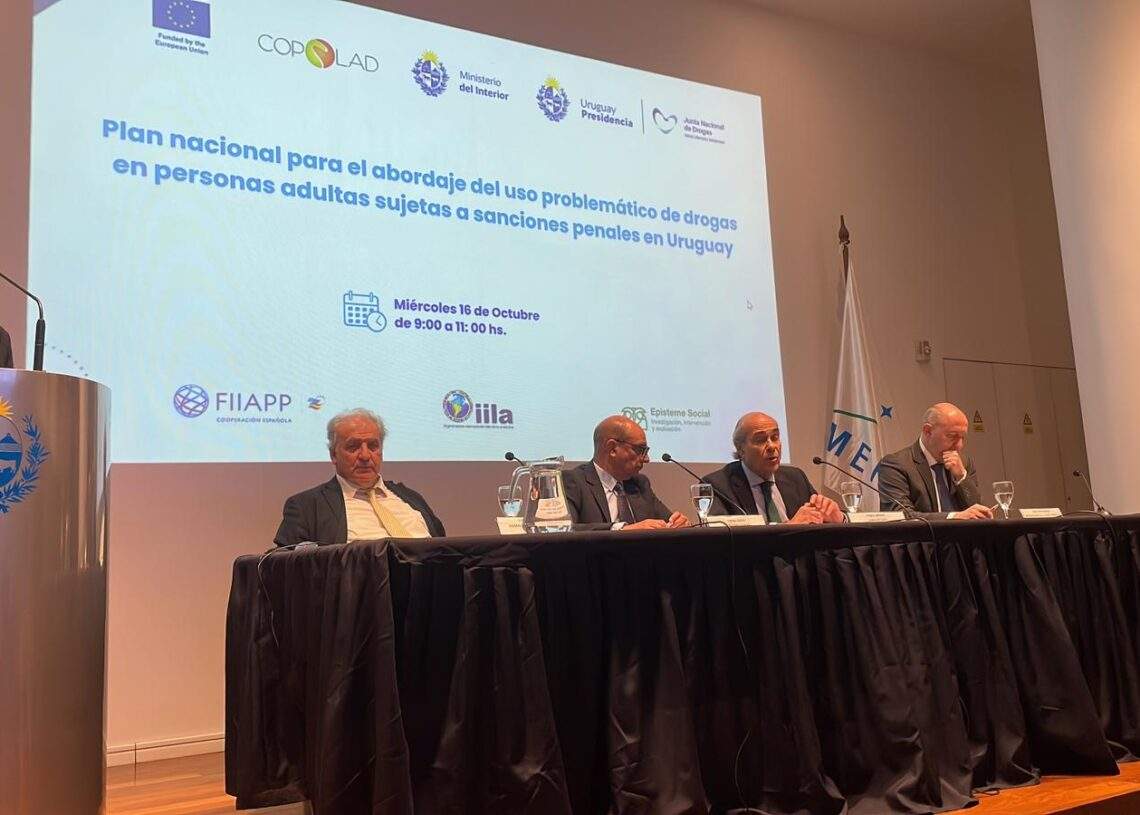This morning the city of Montevideo hosted the launch of the National Plan to Address Problematic Drug Use in Adults Subject to Criminal Sanctions, a common framework for the design, organisation, monitoring and evaluation of public policies that address problematic drug use in persons deprived of liberty and with alternative measures.
The National Drug Board of Uruguay, the Ministry of the Interior of Uruguay and the different institutions involved in the care of populations under criminal enforcement measures, have promoted this Plan that strengthens inter-institutional coordination to ensure a comprehensive and coherent response to people with problematic drug use in deprivation of liberty. COPOLAD III (led by FIIAPP), through Episteme Social, has accompanied the design of this Plan, which includes a gender and harm reduction perspective and is fully in line with public policies on drugs, health and penal execution, as well as with the principles of public health and human rights.
This Plan arises as a response to the prevalence of problematic drug use in the population subject to criminal sanctions, the high availability of drugs inside prisons and the easy access to them. This new document aims to prevent drug use, reduce recidivism, promote social inclusion and reintegration, and improve the response to problematic drug use in this area, in dialogue with national drug policy, health policies and prison policies and penal alternatives.

The launching ceremony was attended by Pablo Abdalá, Undersecretary of the Interior; Paolo Berizzi, Ambassador of the European Union in Uruguay; Juan Miguel Petit, Parliamentary Commissioner for Prisons; Daniel Radío, Secretary General of the National Drug Board of Uruguay; and Ana Juanche and Clara Musto from the COPOLAD III consulting team.
To streamline the technical assistance process, a working group was structured with representatives from the National Drug Secretariat (SND), the National Rehabilitation Institute (INR), the National Technical Sub-Directorate (SNT) and the National Directorate of Alternative Measures (DINAMA).
Five strategic objectives
- Promote coordinated actions for the treatment of problematic drug use both in the prison system and in the community, ensuring adequate therapeutic accompaniment after the completion of criminal sanctions. This coordination seeks to guarantee continuity of care and support people in their reintegration process.
- Establish inter-institutional guidelines for the diagnosis and estimation of the demand for treatment in the target population, which aims to develop more precise and adequate interventions to the characteristics of this population.
- Incorporate a gender and diversity perspective in public policies to address problematic drug use, recognising that women and other vulnerable groups may have different needs that must be specifically addressed.
- Strengthen the processes of recruitment, training and recognition of staff responsible for implementing these policies, ensuring that they have the necessary skills to provide quality care.
- Incorporate into the monitoring and evaluation of treatment programmes for problematic drug use the specific goals of harm reduction for problematic drug use and overall reduction of recidivism.






